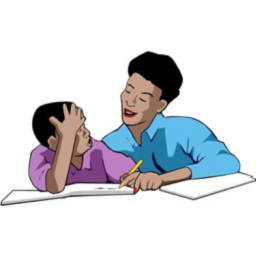Category — 2.1 Children with Nervous System Disorders: Traumatic Brain Injury (TBI
Acquired Brain Injury or Traumatic Brain Injury (TBI)
Children with TBI may display different symptoms, but they all have one thing in common: they have suffered a trauma to the head that made their brain bounce against their skull (Fig. 1).
Figure 1. Skull
Causes of TBI are numerous and they include:
- Trauma to the head caused by a car accident;
- Trauma to the head caused by being hit with a deadly weapon or other object;
- Falling and hitting one’s head;
- Trauma caused to the head because of engagement in a “violent” sporting event (for example, hockey);
- Child abuse.
The symptoms of TBI can be mild or severe, depending on the seriousness and location of the injury to the brain:
Mild effects include:
- Brief loss of consciousness (a few minutes);
- Feeling dizzy and disoriented;
- Headaches;
- Blurred vision;
- Fatigue;
- Trouble sleeping;
Long term effects include:
- Prolonged loss of consciousness (a few minutes to hours);
- Slurred speech;
- Confusion;
- Loss of coordination;
- Having little control over hands and feet;
- Convulsions;
- Losing control over bladder or bowel.
The effects of TBI can be long term and could impact every aspect of a child’s life:
- In serious cases, the child’s cognitive and academic abilities may be delayed, and he or she may have to be re-taught previously-learned skills. A child’s ability to pay attention and concentrate may be seriously compromised, sometimes forever;
- The child may lose some of his or her language and communication skills and may need to re-learn these skills;
- The child may feel very isolated and alone, and may end up having a very low self-esteem;
- The child’s motor skills, both gross and fine, may be delayed, and he or she may need to re-learn how to walk or write;
- The child’s adaptive skills may be quite impaired, and he or she may need to be re-taught how to brush his or her teeth, or tie his or her shoe laces;
- Some children will experience difficulties with sensory integration (see ECI Glossary).
Children with TBI could therefore benefit from the following services:
- Special education: many school-aged children with TBI have an Individual Education Plan (IEP). The school special educator will therefore help them re-acquire any skills they may have lost, as a result of their injuries. The special educator will also help the regular education teacher use methods that are appropriate for the child’s level of function;
- Occupational therapy (OT): the OT will help children with TBI learn or re-learn how to use utensils, pens and pencils (Fig. 2) and other equipment requiring the use of fine motor skills. The OT will also help children learn or re-learn how to tie their shoe-laces, use scissors and other materials used in school. OTs with special training in sensory integration therapy will help children with TBI with any sensory processing difficulties they may have;
Figure 2. Using pen and pencils
- Physiotherapy (PT): the PT will help children with TBI regain as much control as possible over their gross motor skills. PTs will help these children learn or re-learn how to walk (with or without adaptive equipment, such as a walker or a cane), run, go up and down the stairs, establish a sense of balance and sit upright;
- Speech and language pathology: SLPs will help children with TBI re-learn how to talk if they have lost that ability. They may also help these children regain as much control as possible over their oral/motor muscles (that is, the muscles around the mouth);
- Mental health services: some children with TBI will need extensive psychotherapy, in order to come to terms with what has happened to them. In such cases, a licensed psychologist will provide them with regular psychotherapy sessions;
- School counseling: some children with TBI may need several sessions with the school counselor in order to learn how to re-adjust to being in school after a prolonged absence caused by the child’s hospitalization;
- Medical services: most children with TBI will need to be followed quite closely by a medical doctor who specializes in traumatic brain injuries. How long they will need to be seen by such a doctor will depend on the extent of their injury and their speed of recovery;
- Behavior intervention (BI): some children with TBI will need the help of a BI. BIs can help children with TBI deal with the physical manifestations of out of control emotions, such as severe temper tantrums.Although some children with TBI suffer life-long injuries, others recover fully. Regardless of whether or not recovery is full and complete, most children with TBI can lead full lives, if given the love and support that they need and deserve (Fig. 3).
Figure 3. Love and support
see References
http://www.mayoclinic.com/health/traumatic-brain-injury/DS00552/DSECTION=treatments-and-drugs
http://www.tbirecovery.org/?gclid=CJ-Z24id764CFeYbQgoduxd5KA
http://www.traumaticbraininjury.com/
May 27, 2012 No Comments


